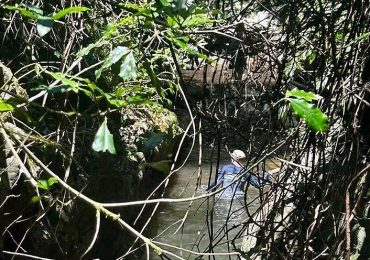The Australian Parliament has just passed major historic reforms to the nation’s outdated and broken nature laws, the Environment Protection and Biodiversity Conservation Act 1999 (EPBC Act). This marks the first overhaul of this law since it came into force under the Howard Government in 2000. While this is a significant step forward for forest protection and nature more broadly in Australia, there is still major work to be done to halt the severe climate impacts on nature from toxic coal and gas mine approvals. Here’s what happened and what it means for nature protection in Australia.
What was wrong with the EPBC Act?
Nature in Australia is in serious decline and that’s the clearest sign that the EPBC Act does not work. Under the old system, very few big development projects were ever rejected and major loopholes allowed rampant deforestation from native forest logging and agriculture. The Act focused far more on process than on real environmental outcomes, and for many years, scientists and environmental law experts have been calling for big reforms to fix the problems.
What happened in the reform process?
There have been two major reviews of the EPBC Act in the past 15 years, yet neither had been acted on until this week. The latest was the “Samuels Review” completed in 2020, which delivered a scathing assessment of the Act. While the Albanese Government attempted to implement some of these reforms last year, it stopped short after intense pressure from the mining industry and the WA Government. This term, the Prime Minister made delivering these reforms a priority, appointing Environment Minister Murray Watt to get the job done by the end of this year.
This week, those long-delayed reforms finally passed through Parliament after a crucial agreement was struck with the Greens to secure the legislation through the Senate.
What are the big positive changes?
There are major changes to how the law will now operate, including:
National Environmental Standards will be introduced, and all environmental decisions, including big project approvals, will be required to adhere to them.
The Environment Minister will have clearer powers to reject the most destructive projects early, with new definitions of “unacceptable impacts” written into the Act.
A new National Environment Protection Agency will be established as an independent watchdog, with significant enforcement powers and dramatically increased fines of up to $825 million for corporations.
Large projects will need to meet a new “net gain” test, proving they leave the environment better off overall.
A stronger emphasis on bioregional planning will allow for large “no-go” zones for destructive development, ensuring quicker approval for renewable energy projects that don’t harm nature.
In addition, the agreement between the Albanese Government and the Greens secured major wins for forests and stronger environmental safeguards more broadly:
For the first time, the native forest logging industry will lose its long-standing exemption, meaning there will be a crackdown on the destruction of threatened species habitat in logging areas.
There’ll also be a $300 million package to retool the forest industry and its workers to shift towards plantation forestry rather than destruction of native forests.
The agricultural industry will face tougher standards for bulldozing regenerated forest older than 15 years and forest and bushland close to watercourses in the Great Barrier Reef river catchment areas.
There will be no fast tracking of coal and gas projects, including preventing states and territories from approving these projects on behalf of the Federal Government.
The power to reject projects based on their impacts on water resources will remain solely with the Federal Government, rather than being handed to states.
The National Environmental Standards will be stronger than originally planned, removing vague wording that left too much discretion to the Environment Minister.
There will be additional constraints on the use of biodiversity offsets as they apply to the habitat of the most threatened species.
Where the reforms still fall short
While these reforms are a big step forward for nature, there are still some major gaps and serious areas of concern that require vigilance and strong advocacy to change.
The biggest of these is the complete lack of powers to reject toxic coal and gas mines based on the severe climate impact they have on nature in Australia. We know that emissions burned from these mine approvals significantly impact our weather, which seriously harms threatened species, ecosystems and iconic places like the Great Barrier Reef and Ningaloo Reef. But the Government refused to even consider the issue. If we are serious about protecting nature, we must continue the fight to end the expansion of coal and gas and phase out fossil fuels altogether.
Another major concern is the proposal to accredit state and territory governments to approve big projects on behalf of the Federal Government. Although there will be some limited safeguards, such as accreditation being based on applying the new National Environmental Standards, we know that state and territory governments cannot be trusted to make such big decisions. Decisions that shape the future of our environment must remain a core responsibility of the national government.
A final concern is the plan to establish a biodiversity offset fund. Without far stronger safeguards, this fund risks becoming a “pay to destroy” scheme, allowing developers to simply pay money to skirt their obligations to protect nature. This is an area that needs much stronger guardrails, although we’d prefer there wasn’t such a fund at all.
What next?
These are truly historic and meaningful changes to our national nature laws. It has taken many years to get here with the hard work of so many Australians, communities and environmental advocates. While serious flaws remain, we now have something much stronger to work with to protect our forests, wildlife and nature in Australia. It’s now about implementation. This includes holding the Government accountable for what has been promised and continuing to advocate strongly to fix the outstanding areas of concern. Let’s get to work!
Leave a comment




